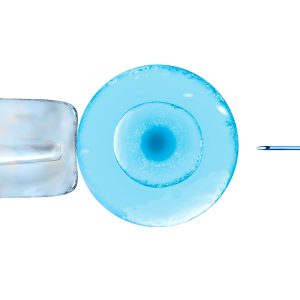More and more women today are choosing to start or expand their families in their 40s. This shift is driven by various factors—from career goals and financial stability to finding the right partner later in life. While there are undeniable challenges, modern fertility treatments and a better understanding of healthy lifestyle choices provide real opportunities for a successful pregnancy even after age 40. Below, we explore the reasons behind this growing trend, the realistic chances of conceiving, potential risks, and the therapeutic options available to help boost fertility.
Introduction
Just a few decades ago, pregnancies in the 40s were considered rare. Today, getting pregnant at 40 is no longer the exception. Advanced reproductive medicine and improved quality of life have made it possible for women in their 40s to experience motherhood—often with positive outcomes. Nevertheless, it’s crucial to understand that time is a significant factor. Natural fertility declines with age, making early consultations with healthcare professionals essential for optimizing your chances.
Why Are More Women Choosing Pregnancy in Their 40s?
- Career and Financial Security
Many women focus on career building and achieving financial stability before starting a family. This can naturally push motherhood plans into their 40s. - Emotional Readiness and Life Experience
The emotional maturity, self-awareness, and life experiences gained over the years can provide a stable, nurturing environment for a child. - Medical Advancements
Modern reproductive medicine offers a range of fertility-support solutions—giving women more control over if and when they choose to conceive.
What Are the Chances of Getting Pregnant in Your 40s?
Early 40s
Women in their early 40s generally have higher pregnancy rates compared to those in their late 40s. However, fertility still falls sharply compared to women in their 30s.
Late 40s
Late 40s pregnancy remains possible but requires a more specialized approach. Assisted reproductive technologies may become essential, especially if there are additional health concerns.
Getting Pregnant at 40 Naturally: Is It Possible?
Yes, it is possible—though statistics show fertility rates decline as women approach perimenopause. If you’re aiming for a natural pregnancy, consider the following:
- Balanced Nutrition
A diet rich in antioxidants, vitamins, and minerals (think leafy greens, berries, whole grains, and fish high in omega-3) supports egg quality and overall reproductive health. - Moderate Exercise
Regular, moderate workouts can improve hormonal balance and reduce stress. However, high-intensity or excessive exercise can sometimes disrupt the menstrual cycle, so finding the right balance is key. - Stress Management
High stress levels can negatively affect fertility. Practices like yoga, meditation, or simply walking in nature can help regulate cortisol levels and support a healthier cycle. - Supplements and Alternative Therapies
Folate (folic acid), vitamin D, CoQ10, and other micronutrients are often recommended. Meanwhile, techniques like acupuncture may help regulate the menstrual cycle and improve uterine blood flow.
What Are the Risks of Getting Pregnant at 40?
While many women in their 40s have successful pregnancies, it’s important to be aware of potential risks:
- Genetic Anomalies
The likelihood of chromosomal abnormalities, such as Down syndrome, increases with age. - Pregnancy Complications
The risk of getting pregnant at 40 includes a higher incidence of gestational diabetes, high blood pressure, and pre-eclampsia—all of which require close medical monitoring. - Higher Intervention Rates
Older first-time mothers may be more likely to need C-sections or other interventions to ensure a safe delivery.
Despite these concerns, regular check-ups and a proactive approach can help manage and even reduce many of these risks.
When Should You Consult a Fertility Expert?
Given the reduced chances for successful reproduction after 40, it is best to have an initial consultation with a fertility specialist as early as possible, even if just to assess potential risks. If pregnancy does not occur after several months of trying, a more thorough investigation is recommended:
- Reproductive Evaluation: Hormonal assessments, ultrasounds, and other diagnostic tests to identify any underlying issues.
- Metabolic Optimization: Address insulin resistance, thyroid function, or other metabolic imbalances that could affect fertility.
- Nutritional Plans: Tailored dietary and supplement regimens to improve overall health and egg quality.
- Specific Fitness Programs: Exercise routines designed for women in their 40s, balancing cardiovascular health and muscle strength without causing hormonal imbalance.
- Excluding Hidden Disorders: Conditions like endometriosis or autoimmune issues might remain undetected and can significantly impact fertility.
At this age, it is advisable to start therapy or seek specialized treatments much earlier, in order to leverage any remaining natural fertility to the fullest extent.
Fertility Treatments for Women Over 40
-
- Instead of aggressive ovarian stimulation, Natural IVF (also called “unstimulated” IVF) relies on the natural development of a single dominant follicle each cycle.
- Mild or low-stimulation IVF uses minimal hormone doses to produce a small number of quality eggs, potentially reducing the physical and emotional stress of standard IVF.
- These approaches may be particularly appealing for women over 40 looking to avoid the side effects of high-dose fertility medications.
-
- In this emerging approach, a patient’s own cells and their naturally produced factors (“cellular products”) are leveraged to support conception and maintain pregnancy.
- The goal is to provide a more holistic environment for the embryo, improving implantation rates and overall reproductive outcomes.
-
- New research aims to “rejuvenate” ovarian function to enhance egg quality and potentially extend fertility.
- Techniques vary and may include treatments that stimulate dormant follicles or improve the overall ovarian environment, though these methods are still under clinical investigation.
-
- For those with significantly decreased ovarian reserves or repeated IVF failures, using donor eggs can dramatically increase the likelihood of a healthy pregnancy.
-
- Initiating these treatments sooner rather than later can make a significant difference in outcomes, given the natural decline in ovarian function as age progresses.
Why Early Intervention Matters
Because fertility declines more rapidly in the 40s, seeking specialized care sooner can be crucial. Early assessment by a reproductive expert helps:
- Evaluate potential risks and underlying issues.
- Optimize metabolism, nutrition, and fitness routines to support egg quality.
- Identify hidden disorders (e.g., thyroid, endometriosis, autoimmunity) that can impact fertility.
By taking a proactive approach—whether through Natural IVF protocols, Biological IVF, or ovarian rejuvenation therapies—women in their 40s can maximize their chances of achieving a healthy pregnancy and successful birth.
Late 40s Pregnancy: Special Considerations
A late 40s pregnancy carries an even greater need for medical expertise and supportive care. Although the odds decrease as age increases, success stories exist of women conceiving at 48 or 49. In such cases:
- Comprehensive Monitoring: More frequent prenatal check-ups to manage potential risks.
- Personalized Support: Tailored nutrition and stress-management programs can improve overall maternal health.
- Collaborative Team Approach: Working with specialists in high-risk obstetrics, endocrinology, and fertility can ensure the best possible outcome.
Conclusion
While pregnancy in your 40s comes with certain challenges, advancements in fertility medicine and strategic lifestyle modifications have made this goal increasingly attainable. If you’re over 40 and hoping to conceive, remember:
- Early Evaluation Matters: Consult a reproductive expert promptly to assess health status and tailor an action plan.
- Optimize Your Lifestyle: Nutrition, exercise, and stress management play crucial roles in boosting fertility.
- Consider Advanced Treatments: Biological IVF, conventional IVF, ovarian regeneration, and egg donation are all viable pathways.
- Stay Proactive: If pregnancy does not occur within several months, seek specialized care for reproductive evaluation and possible interventions.
Though conception rates naturally decline with age, countless women in their 40s successfully experience the joys of motherhood. With the right combination of medical expertise, proactive decision-making, and a supportive lifestyle, getting pregnant at 40 can become a fulfilling reality.
Academician Prof Aleksandar Ljubić, MD, PhD
Academician Aleksandar Ljubić, MD PhD, is a gynecologist recognized for his expertise in reproductive medicine and high-risk pregnancies. He pioneered invasive ultrasound-guided fetal procedures, direct maturation of fetal lungs, inventor of the method of perinatal hearing screening, non-surgical fibroids treatment and advanced NOTES laparoscopic procedures. Professor’s recent research areas include reproductive and perinatal biotechnology, regenerative medicine, assisted reproduction, minimally invasive reproductive surgery, and tumor biology. Read full bio >






